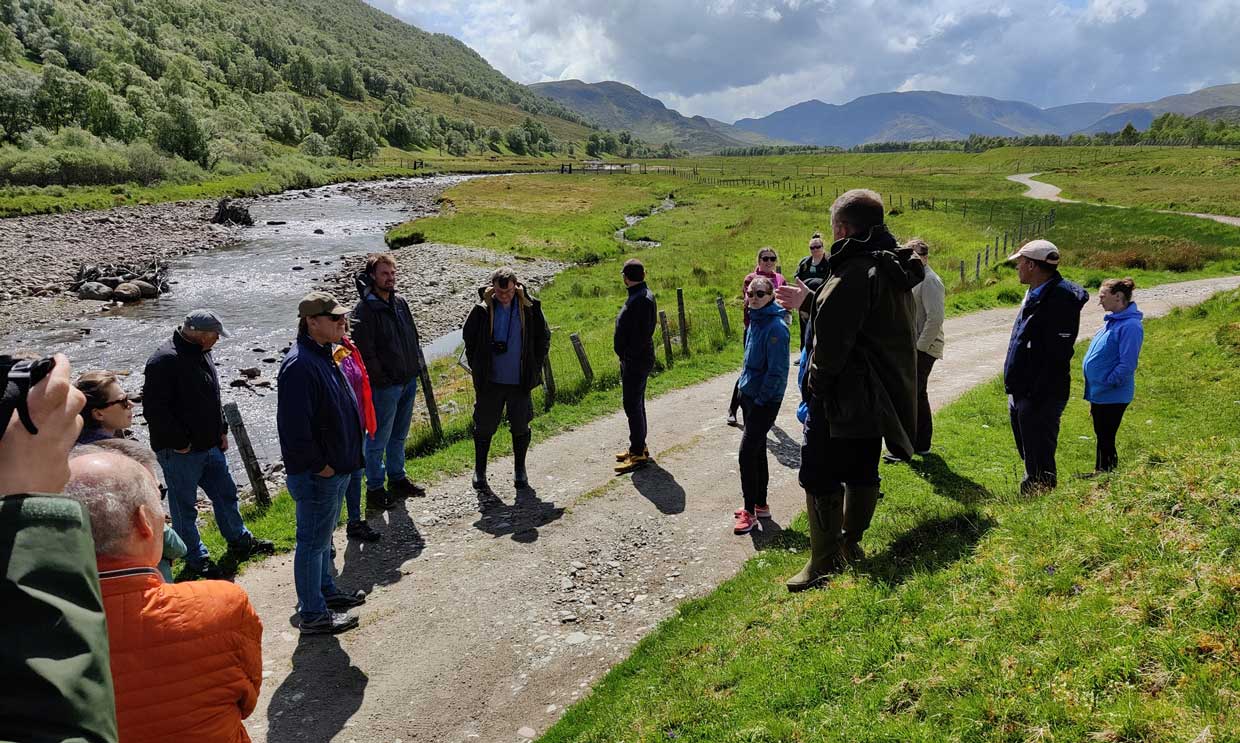Recap: the 2022 Annual Meetings

Delegates at the 2022 NASCO Annual Meeting
2022 saw NASCO’s first ever hybrid Annual Meetings of its Council, Commissions, Finance and Administration Committee and International Atlantic Salmon Research Board. Representatives of the Parties and observers from France (in respect of St Pierre and Miquelon), five Inter-Governmental Organizations and 15 NGOs attended the meeting, with 80 delegates meeting in person in Edinburgh and around 30 more joining virtually. It was also the first time delegates have met face to face at a NASCO Annual Meeting since the 2019 Annual Meeting held in Tromsø, Norway.
As such, there was a lot of business to be carried out and the Meetings were very productive. Full details of each can be found in the Annual Reports of the Council, North American Commission, North-East Atlantic Commission, West Greenland Commission, Finance and Administration Committee and International Atlantic Salmon Research Board Meetings. The key outcomes of these Meetings are listed below:
- a regulatory measure was agreed for the West Greenland Salmon Fishery in 2022, WGC(22)10 (see page 6 for details);
- the NEA confirmed that the Decision on the Faroese salmon fishery adopted in 2021, NEA(21)16, would continue to apply in the 2022 / 2023 salmon fishing season;
- a number of statements were agreed:
- a statement on the threat posed by pink salmon (Oncorhynchus gorbuscha) to wild Atlantic salmon, CNL(22)47 (see page 7 for full details); and
- statements on salmon farming (CNL(22)49 and CNL(22)50). Full details can be found on page 10:
- enhancing the participation of indigenous peoples in NASCO was identified as a potential priority area for NASCO. The Parties agreed to hold a Special Session on indigenous perspectives on Atlantic salmon during the 2023 Annual Meeting;
- agreement was reached on funding an independent high-impact, peer-reviewed, scientific review paper on the impact of salmon farming on wild Atlantic salmon;
- a Special Session was held to consider the recommendations made by the Tromsø Symposium Steering Committee in its Report of the 2019 IYS Symposium. Following the Special Session, NASCO also agreed to update its Stocking Guidelines;

- a number of improvements will be made to enhance the user experience of NASCO’s Rivers Database (see CNL(22)12 for full details). The database will provide a map-based overview of the state of Atlantic salmon populations across the North Atlantic with detailed information available for each mapped river and region. Once the revamp is complete, the database will be translated into the official languages of NASCO’s Parties;
- alternative ways of working in the light of the Covid-19 pandemic were agreed. See the Council Report for full details;
- the Board agreed to hold an inter-sessional meeting to consider its vision, scope and purpose. This meeting was held on 24 and 25 January 2023 and the report of that meeting, ICR(23)02, will be considered at the Board’s 2023 Annual Meeting;
- Council agreed that the President should write to France (in respect of St Pierre and Miquelon) and Iceland to invite them to join NASCO. Letters were sent to France (in respect of St Pierre and Miquelon) on 16 December 2022 and Iceland on 19 December 2022. At the time of writing this report there have been no official responses. However, we understand that responses may be forthcoming. Any further details will be made available in due course; and
- elections were held in each of the Commissions and in the Finance and Administration Committee (FAC). Isabelle Morriset was elected as NAC Chair with Pat Keliher elected as Vice-Chair. NEA elected Alexander Kinninmonth (UK – Scotland) as Chair and Helge Dyrendal (Norway) as Vice-Chair. Stephen Gephard (USA) was re-elected as Chair of the WGC with Katrine Kærgaard (Denmark (in respect of the Faroe Islands and Greenland)) as Vice Chair and Seamus Connor (UK) was elected Chair of the FAC with Heidi Hansen (Norway) re-elected as FAC Vice-Chair. All have been elected to serve for a two-year period from the close of the 2022 Annual Meetings.